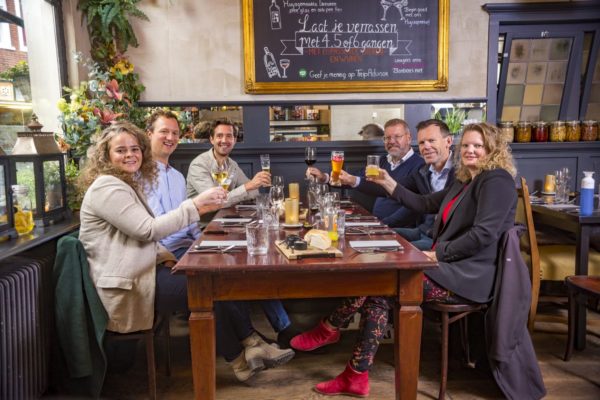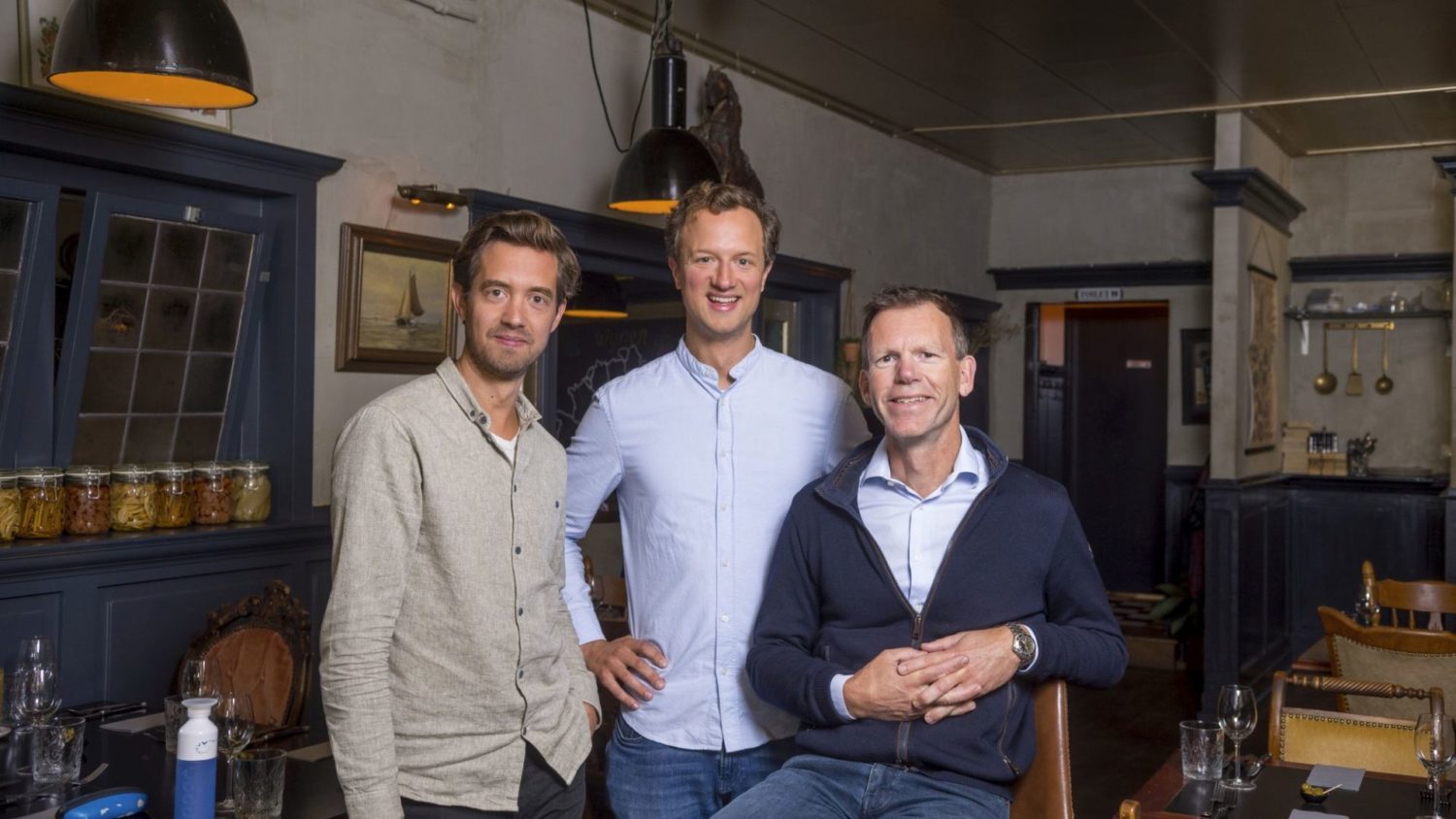
He has wandered quite a bit in recent years. But soon Lex Rademaker hopes to settle down in Wolvega with his company Longbloom for the long haul. 'It takes profound craftsmanship to be able to make high-quality preserved flowers every day.'
In Southwest Friesland, fresh flowers such as roses, orchids and peonies will soon be prepared by Longbloom in such a way that they can be kept for six months or longer. This is done using an innovative, clean and patented process. A method that is as much as 95% cleaner than the conventional way in which so-called preserved flowers are made. It is the tangible result of perseverance, combined with thorough pioneering work.
Because the company is by no means new. The idea for Longbloom came about after Lex came into contact with a couple of flower traders from Aalsmeer in 2010. Although they had sold their business, one part remained in their own hands: reserved roses from Colombia. 'That turned out to be golden trade in Asia in particular,' Lex explains. 'Nevertheless, they decided a little later to stop with that too. However, the idea never left me. Of course, even then I was already a lover of flowers and plants. But I was particularly captivated by the commercial possibilities of reserved flowers. That is why, together with investors, I founded Longbloom that same year. With the goal of eventually becoming world market leader. An ambition that has lost none of its power.'
More nuanced
You would think that Longbloom is targeting a tremendously broad market. After all, who doesn't want to see their flowers displayed in a vase for months on end? Or is it a little more nuanced? It turns out to be the latter. 'Especially in Northwest Europe and North America, people have a great preference for fresh flowers,' says Lex. 'Actually, they are the standard in all countries where the temperature is moderate. Fresh flowers live and wilt, there is change in them. That appeals visibly in rich countries. Our reserved flowers, a unique product in a growing niche market, can be found mainly in the hotel industry, on cruise ships, in the display windows of large department stores and in air-conditioned areas such as convention centers. So in places where the short life of fresh flowers is often an obstacle.'
More efficient and sustainable
Immediately after the foundation, Lex rented a space at the Agrarische Hogelschool in Dronten, where he tried to fathom all the ins and outs of the production process with the help of students. An alcohol-based process that had achieved great success in South America. Until Gert-Jan Euverink, professor of biochemistry at the RUG, drew his attention to the application of supercritical CO2. The use of supercritical CO2, an environmentally friendly and non-toxic solvent, could make the process of preservation much more efficient and, above all, sustainable, the professor indicated. 'We then thoroughly investigated the possibilities,' Lex explained. 'Initially, in 2012, we started importing the flowers ourselves from South Africa and South America, still without the application of supercritical CO2. 'The bouquets were then rented out to catering establishments, hotels and business service providers. The egg of Columbus, we thought. After all, you can reuse the bouquets. At that time NOM also stepped in. NOM has a strong belief in the market opportunities and has therefore been involved in Longbloom from the first commercial hour.'

From left to right: Danielle van Dalfsen (NOM), Adriaan Meewisse, Tom Meewisse, Ruud van Dijk (NOM), Lex Rademakers and Chantal Leijendekker (NOM)
Ecuador
Unfortunately, the supply proved unpredictable and, moreover, the quality of the imported flowers often left much to be desired. And so the company took up production itself. In early 2013, Longbloom moved into a lab at the RUG, the university where Lex once completed his Business Administration studies, and then developed the process with supercritical CO2 together with PhD students and professors.
A year later, he and his family left for Ecuador for two years to apply the new technology on a larger scale in a factory there. That was more difficult than previously thought. 'Especially the language was a barrier,' Lex clarifies. 'Especially when you are working intensively together on a new and complicated process. Nevertheless, I look back with pleasure on the adventure in Ecuador. It was very interesting from a business point of view. Among other things, I learned a lot about how the alcohol-based production process works in South America and noticed that this traditional method hardly has a future as far as sustainability is concerned. Or rather, it taught me that our technique holds considerably better cards in the long run.'
Costly machine
Back in the Netherlands, Lex was interviewed by a journalist from the Flower Trade Journal. The final article, published in the summer of 2016, piqued the interest of rose growers Adriaan and Tom Meewisse from Bleiswijk. The brothers decided to invest in Longbloom and become shareholders in 2017. Since then, Lex and Adriaan have been leading the company together as, as they call it, Chief Flower Officers.
At Tom Meewisse's rose nursery in Bleiswijk, flower preservation based on supercritical CO2 was launched step by step. Thanks in part to funding from InnovationQuarter, the regional development company in South Holland, and the NOM, an expensive machine was purchased. A reactor vessel, to be precise. 'It's basically a cylinder lying on its side, through which CO2 and a very small amount of alcohol are pumped under high pressure,' Lex explains. 'The flowers are dried and impregnated with this.'
Follow-up funding
In 2020, through an agent in Los Angeles, Longbloom managed to bring in Gucci as a major client. The renowned Italian fashion company uses the preserved flowers to make hat boxes that are given to customers as goodies. 'The arrival of Gucci was one of the reasons for NOM to provide Longbloom with follow-up funding,' Lex emphasizes. 'Simply because more than ever we need to ensure that production is predictable. Hence, together with NOM, we are going to convert the machine to a version incorporating the latest insights. Besides Gucci, we currently have quite a list of customers. But producing is many times more difficult than selling. It is without a doubt the most important lesson I have learned so far. It takes profound expert knowledge to be able to make high-quality reserved flowers every day.'
High-quality employment
As mentioned, Longbloom represents a return to the Northern Netherlands. Why exactly? And why Wolvega in particular? 'After consultation with the NOM, we concluded that moving to the North is the best option to take the company forward,' Lex explains. 'Because of the proximity to the RUG, of course, with which we have had a very pleasant collaboration for many years. We would have liked to be located on Campus Groningen, but that turned out not to be financially feasible yet. In Wolvega we now rent a warehouse that meets all our requirements. With the added advantage for Adriaan that Southwest Friesland is much quicker to reach from Bleiswijk than the city of Groningen. Our goal is to let Longbloom grow independently from Wolvega and put together a strong production team. In short, we are creating high-quality employment in the region. And that too, of course, is what the NOM likes to see.'

